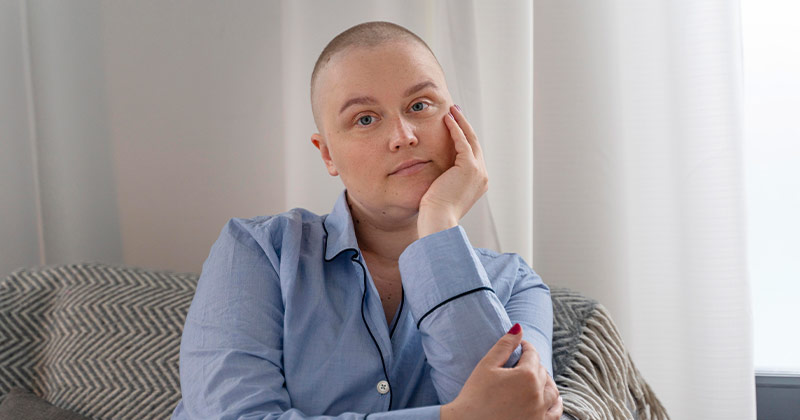Trauma Therapy
“There is no timestamp on trauma. There isn’t a formula that you can insert yourself into to get from horror to healed. Be patient. Take up space. Let your journey be the balm.” – Dawn Serra
As of 2020, an estimated 13 million Americans were living with Post-Traumatic Stress Disorder (PTSD). The actual number of people affected by PTSD could be much higher. Most people will experience trauma at some point in their lives. Not every one of those people will develop PTSD, but you don’t need to wait for PTSD to develop before you get treatment.
At Ocean’s Healthcare, we understand that everyone responds to trauma differently. That’s why we provide trauma therapy to adults and adolescents who’ve experienced trauma.
The Oceans Experience
Oceans is committed to providing quality behavioral health in a safe environment. With our telehealth capabilities we can conduct therapy, education and diagnosis via phone or video. We accept Medicare, TRICARE and most private insurance.
What We Treat: Trauma
Trauma occurs any time you experience a deeply distressing event that has a lasting effect on your mental health. Common examples of traumatic events include witnessing violence, natural disasters, and experiencing intense grief. Going through mental, physical, sexual, or emotional abuse is also very traumatic.
Anyone can experience trauma. Members of our military often experience significant trauma while fighting for our country. People here at home also experience trauma. Most people will experience a traumatic event at some point in their lives.
Trauma is deeply personal. What you find traumatic depends on your personal experiences and how they affect you. Something traumatic for you might not be as impactful for someone else. That’s nothing to be ashamed of. Your experiences and the way you react to them are valid.
If you’ve recently experienced a traumatic event, reaching out for help is important. You will get through this with the right support. Processing your trauma will help you make sense of what has happened without letting it overwhelm you. The longer you go without help, the more intensely your trauma will affect you.

When Does Trauma Become PTSD?
Post-traumatic stress disorder (PTSD) occurs in some people who have witnessed or experienced a traumatic event or series of events. Previously known as “shell shock” and “combat fatigue,” PTSD is commonly associated with military combat veterans, but it can be caused by any kind of trauma.
Not everyone who experiences trauma develops PTSD. But there are a few common signs you can use to identify it. People with PTSD experience intrusive, unwanted memories of the traumatic event. They also avoid reminders of the traumatic event. When someone has PTSD, they also experience intense negative moods, including thoughts of shame and guilt. Another hallmark of PTSD is new or intense emotional and physical reactions, including self-destructive behavior.
If you have PTSD, it can make life extremely difficult, but treatment can improve your quality of life. Learning to understand your trauma will help reduce the intensity of your symptoms. You can also work with a therapist to find ways to manage your symptoms.
How We Treat: Trauma Therapy
At Oceans Healthcare, we have trained trauma therapists who use multiple evidence-based techniques to empower our clients to make sense of traumatic events.
For some clients, care after a traumatic event includes 24/7 structured care and medication management at our inpatient facility. Our partial hospitalization program will be a better fit for people who need 5 hours of rigorous care during the day but want to return home in the evening. Our intensive outpatient program (IOP) is a good fit for clients who want to maintain their daily schedules but still need 2 hours of therapy 2 or 3 evenings a week.
Regardless of the kind of care you choose, we’re prepared to help you manage your trauma with a treatment plan that’s tailored to meet your needs.
We understand that active duty service members and combat veterans have unique experiences with trauma and PTSD. That’s why our STAR military program is available at certain locations. It provides tailored care to military members and their families.
We have a dedicated military liaison to ensure seamless admission into the program. Our STAR program provides a structured environment that adheres to military time. All of our program team members have military culture training.
What Is Trauma-Informed Care?
Trauma-informed care considers the full range of your experiences when determining the best course of treatment.
The six core principles of trauma-informed care are:
- Humility and responsiveness. Trauma-informed care acknowledges the impact biases and intergenerational trauma have on you as a client and addresses them with empathy and compassion.
- Safety. You should feel like you can share your experiences without fear of judgment and that your physical safety is prioritized.
- Trustworthiness and transparency. Our clinicians are open and honest with you about their decisions and seek to build trust.
- Peer support. You’re connected with people who have similar experiences, so you can learn from one another through group therapy and other activities.
- Collaboration. Your opinions are valued and considered during every decision we make regarding your care.
- Empowerment. We focus on your strengths and build on them, emphasizing your ability to heal and overcome traumatic experiences.
Types of Trauma Therapy Offered at Oceans Healthcare
We know that everyone responds to treatment differently. That’s why we provide multiple different evidence-based trauma therapies to empower you to reach your recovery goals.
Prolonged Exposure Therapy (PET)
PE is a form of therapy in which you’re gradually and safely exposed to the fears related to your trauma. If you participate in PE, you’ll meet with a therapist regularly to discuss your feelings, memories, and fears about your trauma.
The goal is that you’ll recognize that your thoughts and feelings are not dangerous through your work with a trusted therapist in a safe environment. It’s important to acknowledge and recognize your emotions to move forward.
Eye Movement Desensitization and Reprocessing (EMDR)
EMDR was developed specifically to treat PTSD. In EMDR, rhythmic eye movements are used in combination with a focus on trauma. This will help your body and mind access the memories as they’re stored by the brain.
If you participate in EMDR, the goal is to reduce the intensity of reactions to triggers. This will help you feel more at ease in your body and mind.
Cognitive Behavioral Therapy (CBT)
CBT looks at the relationship between your thoughts, feelings, and actions. A trauma-focused therapist will help you identify the way you’re thinking about your trauma. You and your therapist will work together to reframe your thoughts and identify coping strategies. This will help you reduce your self-destructive behaviors.
Cognitive Processing Therapy (CPT)
CPT is a subtype of CBT that is specifically designed to help you challenge beliefs about your trauma. In CPT, you will write down a detailed account of your traumatic experiences. This empowers you to stop avoiding traumatic memories and reconceptualize the event in a safe environment.
Narrative Exposure Therapy (NET)
In NET, you and your therapist will use the stories you tell yourself about your life to reframe the role trauma plays in your narrative. Together, the two of you will identify a chronological series of events that include positive and traumatic memories. The goal is to help you see your memories in totality rather than focusing on individual negative memories.
How Will You Benefit from Trauma Therapy?
When the results of trauma go untreated, memories of traumatic events can have a severe impact on your life. It can hurt your relationships with others and lead to difficulties at work and school.
Trauma therapy will help improve your quality of life in many ways, including:
- Overcoming your fears
- Learning to trust others again
- Recognizing and managing your triggers
- Developing healthy coping mechanisms
- Reducing negative feelings overall
- Coming to a deeper understanding of your trauma and who you are as a person
No matter how severe your trauma is, you’re capable of improving your quality of life through treatment.

Get Help Now for Trauma in Dixieland
Right now, it feels like your trauma has a permanent hold on you. It dictates what you can and can’t do and leaves you feeling helpless. That feeling doesn’t have to last forever. You are a survivor. With help, you can learn to thrive. Get started with treatment today so you can leave your trauma in the past where it belongs.
You can recover from your trauma at Oceans Healthcare. With more than 30 locations throughout the south and over 34 thousand clients treated annually, we have the expertise to provide you with the care you need. Each of our programs is overseen by a board-certified psychiatrist, ensuring the highest quality of care. Call us now at 888-293-6899.
Oceans Healthcare: Your Path, Our Purpose.

